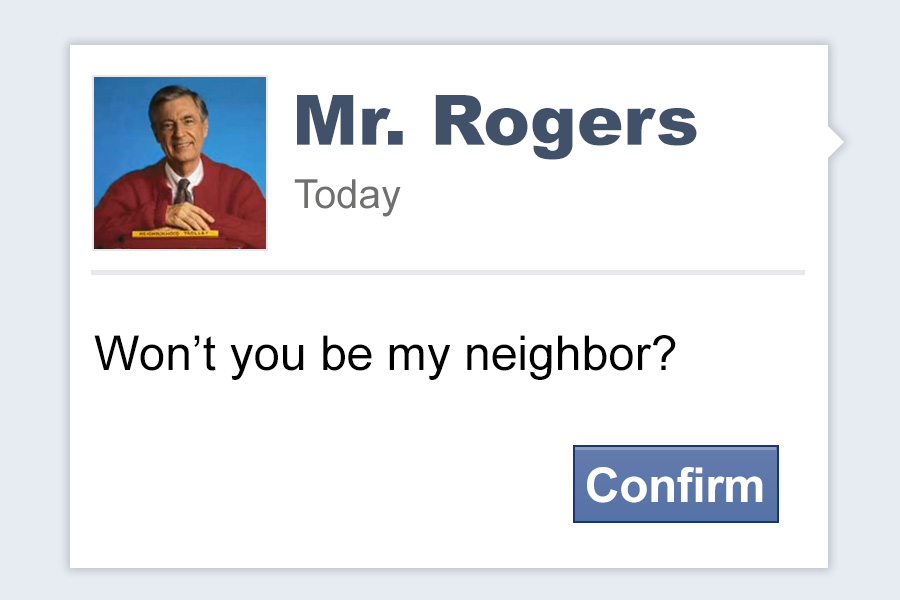In America today, the idea of a friendly neighborhood is basically a nostalgic myth. While about a third of us might have some social contact with our neighbors more than once a month, another third of us don’t even know our neighbors by name. Basically, most of us are ignoring our neighbors altogether, or at best having a sort of awkward conversation with them once in a while. Mr. Rogers is sitting by himself and crying.
Naturally, there’s a business out there that thinks the solution to community-building is to introduce neighbors to each other electronically, in a forum where they don’t actually have to talk. It’s a social network called Nextdoor, which creates a private space for communities of 75 households or more to talk to each other. There are more than 6,500 set up already, Slate reports:
All of them were launched by regular folks who sought a way to connect with their neighbors, but didn’t want to ring doorbells or make small talk in the elevator.
If neighbors do hop on board, they must register using their real names and physical addresses (which Nextdoor then verifies before admitting them). Any posts on the site will be made under those real names — not made-up screen names — with real addresses visible for all other neighbors to see.
People talk about basically what you think they would: who to call to unclog their toilets and whether the new restaurant in town sucks or is delicious. Because there’s no anonymity, users tend not to have to deal with the vicious backbiting that small communities can foster. (At least not online. IRL, neighbors are still free to whisper behind each others’ backs about who gained weight, is sleeping with the plumber, etc.)
In other words, the internet is doing a pretty good job at fostering the social habits that we’re too chicken to establish by knocking on each others’ doors. But while there aren’t any welcome-to-the-neighborhood baked goods online, there is the risk that your annoying neighbor will take your Nextdoor comment on their post as an invitation to (*gasp*) actual conversation. Slate considers:
Once even a shred of a relationship has been established, a neighbor might pound on your door at any moment, sidle up to you while you’re jogging, or maneuver next to you in line at the corner store. We can’t block them, as we can with annoying people on Facebook. The real life equivalent of blocking is a restraining order.
Of course, if you’re the one person in the neighborhood who refuses to join the neighborhood social network, you know everyone’s going to be talking about you behind your back. If you want to know what they really think of you, just wait a while to join and then dig through the archives.




